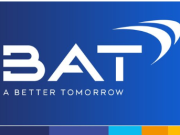Valid for eight years, besides dismissing all pending patent infringement cases, the non-monetary global settlement also prevents future claims against current products. The agreement marks a pivotal moment for both companies, providing clarity and allowing them to focus on innovation without the burdens of prolonged legal battles. BAT’s CEO, Tadeu Marroco, expressed satisfaction, emphasizing the importance of the resolution for BAT and its stakeholders. PMI’s CEO, Jacek Olczak, echoed this sentiment, highlighting that the agreement was a positive step forward for both parties.
One notable aspect of the settlement is the joint effort to request the rescinding of the block on IQOS imports into the United States. This development is particularly significant for PMI, as it aims to introduce the product to the large US nicotine alternatives market in the near future.
Last year the market-share gap between Vuse and the renowned top-selling Juul had narrowed significantly, due to the status of Juul’s Premarket Tobacco Applications (PMTA). The Nielsen analysis of convenience store data, covering the four-week period ending Feb. 12, 2023 had reported that Juul was at 37.9% market share and Vuse at 33.7%, equating to Juul holding about a 4.2% gap over Vuse. This of course indicates iQOS’s missed opportunity for growth at the time and since.
An agreement which protects both companies
Meanwhile, the new eight-year agreement between the tobacco companies not only addresses existing disputes but also paves the way for the introduction of future iterations of products by both companies. This aspect is crucial for maintaining a competitive edge and driving further innovation in the evolving landscape of alternative tobacco products.
The financial markets responded to the news, with shares in BAT experiencing a brief spike, rising 1.4% at 1235 GMT. In contrast, PMI’s stock remained flat in thin pre-market trading. The positive market reaction suggests that investors view the settlement as a favourable development, eliminating uncertainties associated with prolonged legal battles and creating a more conducive environment for business operations.
How smoke-free minded are they really?
In other news, not long ago Philip Morris NZ faced yet more criticism when it launched a new ‘cigarillo’ in New Zealand. Like BAT, Philip Morris has been doing its best to portray itself as moving away from combustible tobacco towards more sustainable products. Nevertheless, the new product looks like a cigarette and is marketed as one, but is sold at about $3 cheaper per pack.
The Philippines-made cigarettes come in a brown paper which is reportedly meant to look like a tobacco leaf, hence allowing them to be imported as “cigarillos”. These products are subject to a lower excise duty, at about $5.24 less per pack enabling the company to sell them for 10% less than the next cheapest cigarette.












